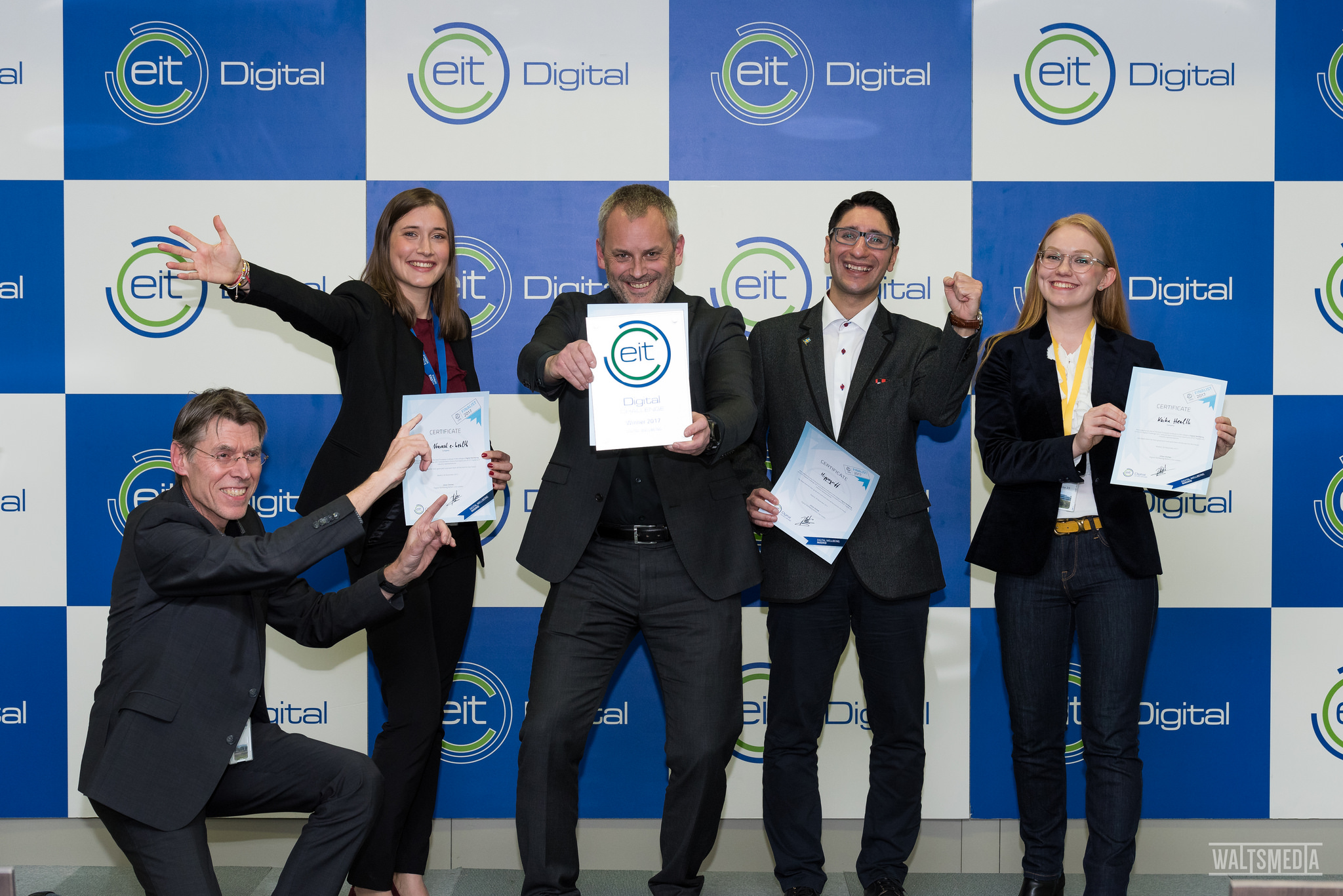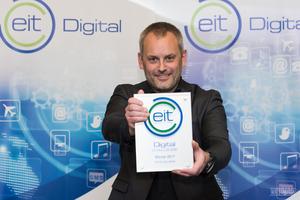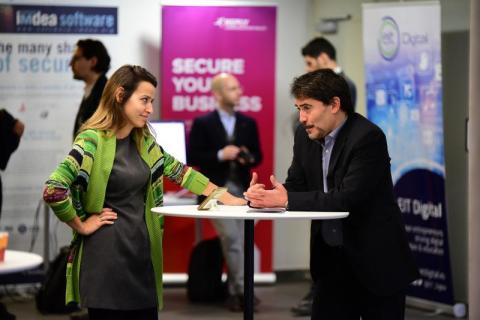EIT Digital Challenge: Lexplore named Best Scale-up in Digital Wellbeing

EIT Digital has named Lexplore as the best European technology scale-up 2017 in the field of Digital Wellbeing
Lexplore, the developer of an artificial intelligence and machine learning method for identifying children with dyslexia, has won first prize in the Digital Wellbeing category of the annual EIT Digital Challenge.
The prize includes a EUR 50 000 cash prize and full year of growth support from the EIT Digital Accelerator worth an additional EUR 50 000.
'Dyslexia is a difficult word for a pretty common problem that can make life tough: reading and writing disabilities. It is estimated that between 10 and 20 per cent of the population suffers from dyslexia, which may vary by country, explained Dominik Krabbe, EIT Digital Challenge Lead. He continued: 'The EIT Digital Challenge aims to detect Europe's best digital technology scale-ups that promise to improve the life of Europe's citizens and strengthen the economy. [tweetable alt="Lexplore is exactly what we are looking for: they are addressing a large and important need."]Lexplore is exactly what we are looking for: they are addressing a large and important need. [/tweetable]With the EIT Digital Accelerator, we will now support Lexplore to expand internationally and make their method available to more people in Europe and beyond.''[tweetable]When I read about the EIT Digital Challenge, I thought it was a great opportunity and match for us[/tweetable]. Winning would give us a lot credibility and trust. And we did indeed obtain the best possible endorsement for our solution as EIT Digital believed in us and chose us as the winner,' said Lexplore CEO Fredrik Wetterhall.
Lexplore's process is completely digital and consists of three stages: test, analysis and results.
The test is individual, working with one student at a time. Lexplore conducts the tests on school premises, taking only a few minutes per student. The child reads two short passages on a computer screen while his or her eye movements are recorded using an eye-tracking device. When the test is completed, the student can go back to class.
'Our point of departure is the direct relationship between eye movement patterns and cognition that is well-established in current research. It is important to note that irregular eye movement patterns don't cause dyslexia - they are neurological markers of the problems encountered by those with dyslexia when reading. Moreover, the eye movements are not the key to any intervention solutions,' said Fredrik Wetterhall, as he explained the analysis process step.
When the analysis is completed, the results are made accessible on a web portal where authorized users can log on. The results reveal clearly which students are either at risk or not for the condition. This avoids unnecessary assessments, so that time and resources can be used where they are needed most. The information on the web portal is secure and encrypted, and all data is handled in accordance with the applicable information privacy regulations.'Thanks to us participating in the EIT Digital Challenge, we have a lot of new contacts and it was rewarding to learn about the other great companies participating in the challenge. And this is only the starting point: the big value will be next year when we will be part of the EIT Digital Accelerator. As a result, we will gain a lot more visibility and contacts within EIT Digital and its partners,' said Fredrik Wetterhall.
The EIT Digital Accelerator comprises a team of experienced business developers and fundraising experts. They operate from 13 cities across Europe as well as a hub in San Francisco. Since 2012, they have supported more than 260 startups in accessing new markets and have helped them raise more than EUR 90 million in investment to date.
In total, five digital technology companies from across Europe competed in front of an international expert jury during the EIT Digital Innovation Day in Trento, Italy. This Digital Wellbeing final was part of a series of five EIT Digital Challenge final events, each dedicated to a specific digital technology topic. The full list is below:
- Digital Cities - Trento - November 28, 2017
- Digital Industry - Eindhoven - November 29, 2017
- Digital Wellbeing - Madrid - November 30, 2017
- Digital Finance - Budapest - December 4, 2017
- Digital Infrastructure - Berlin - December 11, 2017
Catch up with the latest news from the EIT Community in the Newsroom.
Subscribe to the EIT Newsletter to get the best of the EIT Community's news in your inbox once each month.




 Share this page
Share this page


